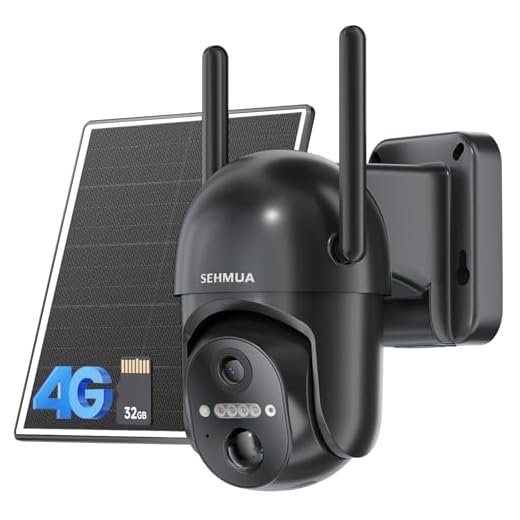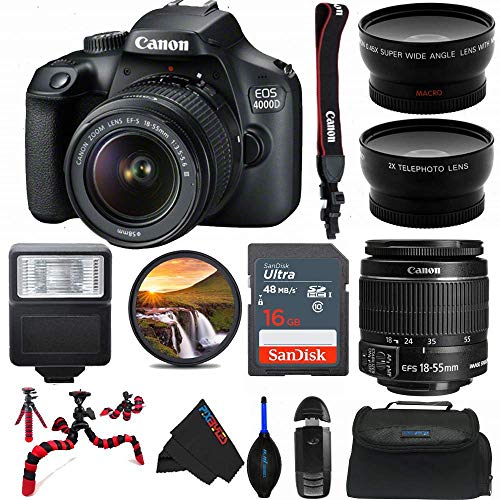




Security cameras have become an essential tool for home and business security, providing peace of mind and evidence in case of incidents. However, not all security cameras require a wifi connection to function effectively.
Traditional security cameras that use wired connections like Ethernet cables or powerline adapters can operate without wifi. These cameras are ideal for areas with poor or unreliable wifi signals, ensuring a consistent surveillance system.
Additionally, some modern security cameras come equipped with built-in storage options such as SD cards or local hard drives, eliminating the need for a constant internet connection. These cameras offer a convenient and secure way to store footage locally.
Are There Security Cameras That Work Without WiFi?
Yes, there are security cameras available that do not require a WiFi connection to function. These cameras typically operate using other wireless technologies like cellular networks, Bluetooth, or local storage options.
Security cameras that work without WiFi are ideal for areas with limited or no internet connectivity. They can provide surveillance and security without relying on a WiFi network, making them suitable for remote locations or off-grid properties.
Benefits of Security Cameras Without WiFi:
- Reliability: Cameras that do not depend on WiFi are more reliable in areas with unstable or no internet connection.
- Privacy: Some users prefer non-WiFi cameras for enhanced privacy and security.
If you are looking for a security camera solution without WiFi, consider exploring options that utilize alternative wireless technologies for connectivity.
Security Cameras That Operate Independently
While most security cameras rely on a Wi-Fi connection for live streaming and remote access, there are some models that can operate independently without the need for a Wi-Fi network. These cameras typically record footage to a local storage device, such as a microSD card or a built-in hard drive, allowing you to access the recordings later without an internet connection.
One example of a security camera that operates independently is the Arlo Go, which uses a cellular connection to transmit video footage instead of Wi-Fi. This makes it ideal for remote locations where Wi-Fi is not available. Another option is the Reolink Argus 2, which has a built-in rechargeable battery and can store footage locally on a microSD card.
Benefits of Independent Security Cameras
One of the main benefits of security cameras that operate independently is that they are not reliant on a Wi-Fi network, making them more versatile and suitable for areas with poor or no internet connectivity. Additionally, these cameras can offer greater privacy and security as they do not transmit data over the internet, reducing the risk of hacking or unauthorized access.
In conclusion, if you are looking for a security camera that can function without Wi-Fi, there are options available that can meet your needs. Consider the features and capabilities of each model to find the best fit for your specific requirements.
Without the Need for WiFi?
While many security cameras rely on WiFi for connectivity, there are some options available that can work without it. These cameras typically use other methods of communication, such as cellular networks or local storage, to transmit and store video footage. Here are a few examples:
| Camera Model | Connection Method |
| Arlo Go | 4G LTE Cellular Network |
| Reolink Argus 2 | Local Storage (SD Card) |
| Blink XT2 | Local Storage (Sync Module) |
These cameras provide an alternative for users who may not have access to a reliable WiFi connection or prefer not to use WiFi for security reasons. Keep in mind that the functionality and features of these cameras may vary, so it’s essential to research and compare different options to find the best fit for your needs.
Alternative Solutions to WiFi Cameras
While WiFi cameras are popular for their convenience and flexibility, there are alternative solutions available for those who prefer not to use WiFi. Here are some options:
1. Wired Cameras
Wired cameras connect directly to a DVR or NVR using cables, eliminating the need for a WiFi connection. These cameras are reliable and secure, but installation can be more complex.
2. Cellular Cameras
Cellular cameras use a cellular network to transmit data instead of WiFi. These cameras are ideal for remote locations where WiFi signals may be weak or unavailable. However, they may require a separate data plan.
- Cellular cameras can be a good option for outdoor surveillance or monitoring areas without WiFi coverage.
- Some cellular cameras offer advanced features like night vision and motion detection.
By exploring these alternative solutions, you can find a security camera system that meets your needs without relying on WiFi.
Security Cameras with Local Storage
Security cameras with local storage are a great option for those who want to have footage stored directly on the camera itself, without the need for an internet connection or cloud storage. These cameras typically come with a built-in SD card slot or USB port where you can store video recordings locally.
By using local storage, you can ensure that your footage is secure and easily accessible without relying on an internet connection. This can be particularly useful in areas where internet connectivity is unreliable or where privacy concerns may arise from storing footage in the cloud.
Wired Security Cameras
Wired security cameras are a reliable option for those looking for a surveillance system that does not rely on Wi-Fi. These cameras are connected directly to a recorder or monitor using cables, providing a stable and secure connection.
Benefits of Wired Security Cameras:
1. Reliability: Wired cameras are not susceptible to interference or signal loss, ensuring a consistent video feed.
2. Security: Since wired cameras do not rely on Wi-Fi, they are less vulnerable to hacking or signal jamming.
While wired security cameras may require professional installation due to the cable connections, they offer a dependable solution for monitoring your property without the need for Wi-Fi.
Battery-powered Security Cameras
When looking for security cameras that work without wifi, battery-powered cameras are a great option. These cameras are equipped with rechargeable batteries, eliminating the need for a constant power source. They are easy to install and can be placed virtually anywhere, making them a versatile choice for home security.
Many battery-powered security cameras offer features such as motion detection, night vision, and two-way audio. Some models also come with SD card storage options for local video storage, eliminating the need for a cloud subscription. These cameras typically connect to a base station via a wireless signal, allowing you to monitor your home remotely without the need for wifi.
Cellular Security Cameras
Cellular security cameras are a great option for those looking for a surveillance solution that works without Wi-Fi. These cameras use a cellular network connection to transmit video footage, eliminating the need for a Wi-Fi connection. This makes them ideal for remote locations or areas where Wi-Fi signals may be weak or unreliable.
Cellular security cameras are easy to set up and offer reliable monitoring capabilities. They are often used in construction sites, rural properties, and other areas where traditional Wi-Fi cameras may not be practical. These cameras typically require a SIM card and a data plan to operate, but they provide a secure and convenient way to monitor your property.
Key Benefits of Cellular Security Cameras:
- Works without Wi-Fi
- Reliable monitoring in remote locations
- Easy to set up and operate
- Secure transmission of video footage
Popular Cellular Security Camera Brands:
| Brand | Description |
|---|---|
| Reolink Go | Offers 4G LTE connectivity and HD video quality |
| Arlo Go | Provides wireless monitoring with 3G/4G LTE connectivity |
| Verizon Canary Flex | Works with Verizon’s 4G LTE network for reliable surveillance |






